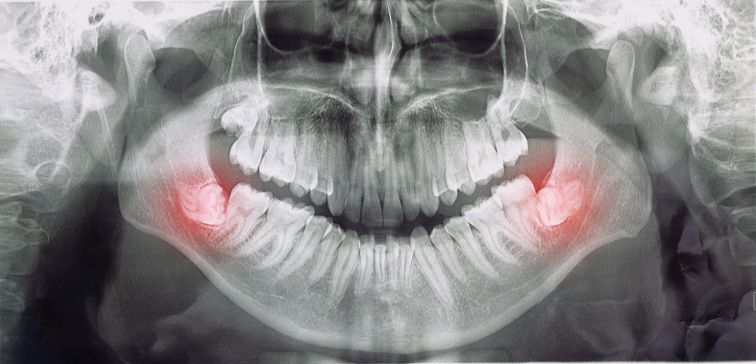Molars, located at the back of the mouth, play a vital role in chewing and grinding food. However, due to their position and function, molars are prone to various dental issues that can cause significant discomfort or pain. Understanding the common causes of molars teeth pain and knowing when to seek professional help is essential to maintain good oral health and avoid complications.
Understanding Molars Teeth Pain
Pain in the molars can range from mild sensitivity to severe throbbing discomfort. Because molars are situated deep inside the mouth, it can sometimes be challenging to identify the exact cause of the pain without a professional examination. The pain might arise from dental decay, infections, or even issues unrelated directly to the teeth, such as muscular problems in the jaw.
It’s important to recognize that molar pain can interfere with daily activities like eating, speaking, and sleeping. If left untreated, the underlying causes of the pain can worsen and lead to more serious dental conditions.
Common Causes of Molars Teeth Pain
1. Tooth Decay and Cavities
One of the most frequent reasons for molar pain is tooth decay, which occurs when bacteria in the mouth produce acids that erode the enamel. Molars have grooves and pits on their surfaces, making them susceptible to plaque accumulation and cavities. When a cavity reaches the deeper layers of the tooth, it can cause sharp or persistent pain.
2. Gum Disease
Gum disease, or periodontal disease, affects the tissues surrounding the teeth, including the gums and bone. Inflammation and infection caused by poor oral hygiene can lead to gum recession and expose sensitive parts of the tooth near the molars, resulting in pain and discomfort.
3. Tooth Abscess
A tooth abscess is a pocket of pus caused by bacterial infection at the root of the tooth or between the tooth and gum. Abscesses usually cause intense, throbbing pain and may be accompanied by swelling, fever, and a bad taste in the mouth. This condition requires immediate dental attention to prevent the spread of infection.
4. Tooth Fracture or Cracks
Molars endure a lot of pressure when chewing, making them vulnerable to fractures or cracks. These breaks can expose the inner layers of the tooth, causing sharp pain, especially when biting down or when the tooth is exposed to hot or cold temperatures.
5. Impacted Wisdom Teeth
Wisdom teeth, or third molars, often emerge in late adolescence or early adulthood and can sometimes become impacted. Impacted wisdom teeth fail to fully erupt and may press against adjacent teeth, causing pain, swelling, and sometimes infection.
6. Bruxism (Teeth Grinding)
Grinding or clenching the teeth, often during sleep, can cause excessive wear on molars and lead to tooth sensitivity, jaw pain, and headaches. Bruxism may not always cause immediate pain but can result in significant dental problems over time.
7. Myofascial Pain Syndrome
Sometimes, molar pain might not originate directly from the teeth but from muscle tension in the jaw. Myofascial pain syndrome involves trigger points in the facial muscles that can radiate pain to the molar region, causing discomfort that mimics toothache. To learn more about this less common cause, consider consulting resources on molars teeth pain and myofascial pain management.
When to See a Dentist
It is crucial to seek professional dental care when experiencing molar pain, especially if the discomfort persists for more than a day or two or if it is severe. Immediate consultation is recommended under the following conditions:
- Severe or worsening pain that affects your ability to eat, sleep, or concentrate
- Swelling in the face, jaw, or gums
- Fever accompanying the tooth pain
- A bad taste or foul odor in the mouth, which may indicate infection
- Pain triggered by biting or chewing
- Visible cracks or chips in the tooth
- Bleeding or pus around the tooth or gums
A dentist will conduct a thorough examination, including X-rays if necessary, to determine the exact cause of the pain and recommend appropriate treatment.
Treatment Options for Molars Teeth Pain
Treatment depends on the underlying cause but may include:
- Fillings or crowns for cavities and cracked teeth to restore tooth structure and relieve pain.
- Root canal therapy for infected or abscessed teeth to remove infected tissue and save the tooth.
- Tooth extraction if the tooth is severely damaged or impacted wisdom teeth causing pain.
- Deep cleaning or scaling for gum disease to remove plaque and tartar buildup.
- Mouthguards or behavioral therapy for bruxism to protect teeth and reduce muscle tension.
- Medications such as antibiotics for infections or pain relievers to manage discomfort.
- Physical therapy or muscle relaxants if myofascial pain is involved.
Preventing Molars Teeth Pain
Good oral hygiene is the first step in preventing molar pain. Brushing twice daily with fluoride toothpaste, flossing regularly, and visiting the dentist for routine check-ups can help detect and address dental issues before they become painful.
Limiting sugary foods and drinks, avoiding tobacco, and wearing protective gear during sports can also reduce the risk of tooth decay and trauma.
Conclusion
Molars teeth pain can be caused by a variety of dental and muscular issues, ranging from common cavities to more complex conditions like impacted wisdom teeth or myofascial pain. Early detection and treatment are key to managing pain and preserving oral health. If you experience persistent or severe molar pain, it is important to consult a dental professional promptly to receive an accurate diagnosis and effective treatment.



